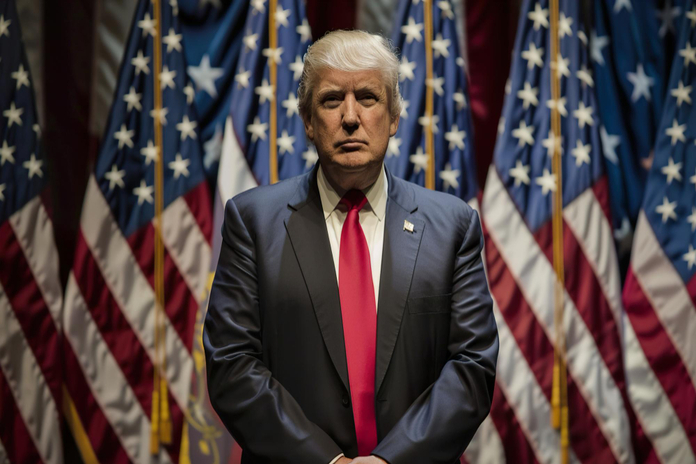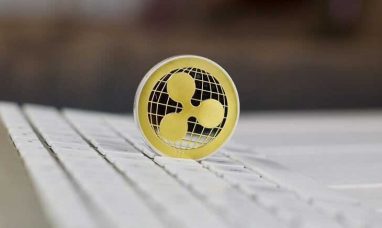Donald Trump’s latest foray into the digital asset world has ignited a fresh storm of controversy, with the Trump cryptocurrency scandal exposing new channels for self-enrichment and foreign influence. While past presidents have taken steps to avoid conflicts of interest, Trump’s second term is marked by a blatant embrace of the cryptocurrency space to monetize his office — a move that experts warn could jeopardize both ethical standards and national security.
Trump Coin: The Birth of a Speculative Grift
In January, days before his second inauguration, Trump-affiliated businesses launched a memecoin dubbed $Trump — a digital token with no underlying value beyond market speculation. Despite its lack of utility, the token surged to $75 per coin before quickly crashing. Speculators fueled the initial hype, but the Trump family benefited regardless, collecting millions in trading fees. Since the coin’s launch, over $312 million in crypto transactions and $43 million in other fees have flowed to Trump-linked entities.
The Trump cryptocurrency scandal isn’t just about personal gain — it also reveals how easily political figures can exploit poorly regulated markets to attract undisclosed funds. The mechanics of the Trump coin echo classic pump-and-dump schemes, but with the added danger of being led by the most powerful man in the world.
Gala Access: Trading Crypto for Influence
In a bid to inflate the token’s value again, Trump’s team announced that the top 220 holders of the $Trump token would receive exclusive invites to a gala dinner at Trump National Golf Club in Virginia. The top 25 buyers were offered an even more coveted prize: a VIP reception with the president and a private White House tour.
This crypto-powered sweepstakes wasn’t framed as a political fundraiser, but a private event organized by Trump’s business. Campaign laws — which require donor disclosures and spending restrictions — didn’t apply. This loophole allowed Trump to legally collect massive sums from anonymous buyers, many of whom were foreign investors.
Foreign Ties: The Risk of Crypto Influence
According to The Washington Post, nearly half of the top 220 memecoin holders used exchanges that ban U.S. users, suggesting international involvement. Among them was Justin Sun, the Chinese billionaire founder of crypto platform Tron. Despite being charged with fraud by the Securities and Exchange Commission (SEC) in 2023, Sun attended the gala after buying more than $20 million worth of Trump memecoins.
Strikingly, the SEC moved to pause its lawsuit against Sun shortly after Trump’s second term began. The optics of this decision, combined with Sun’s appointment as an adviser to Trump’s latest crypto venture, World Liberty Financial, raise serious concerns about political interference and favoritism.
Stablecoins, Abu Dhabi, and $2 Billion in Exposure
The Trump cryptocurrency scandal doesn’t stop at memecoins. On May 1, Trump’s son Eric and real estate partner Zach Witkoff announced that World Liberty would receive a $2 billion investment backed by the government of Abu Dhabi, using the platform’s stablecoin. That investment, if finalized, could result in hundreds of millions in profits for Trump and his family.
The move places a sitting U.S. president in the direct financial path of a foreign government’s strategic investments — a clear conflict of interest and a potential national security risk.
Deregulation Agenda: Dismantling Oversight
Adding to the alarm, the Trump administration has already begun rolling back crypto regulations. In April, the Justice Department was ordered to disband its crypto fraud unit, and Trump has vowed to make the U.S. the “crypto capital of the planet.” These deregulatory moves could open the floodgates for even more abuse.
While Trump once called crypto “a scam,” he now praises it as “common sense,” especially after reaping millions from it. The hypocrisy underscores how the Trump cryptocurrency scandal is less about belief in blockchain and more about building wealth unchecked.
Conclusion
With digital assets becoming a key pillar of Trump’s business empire, the boundaries between presidential power and personal profit are rapidly eroding. As foreign actors gain access to the president through crypto, the Trump cryptocurrency scandal reveals a troubling new blueprint for monetizing political office — one that undermines transparency, national security, and public trust.
Featured Image: Freepik




